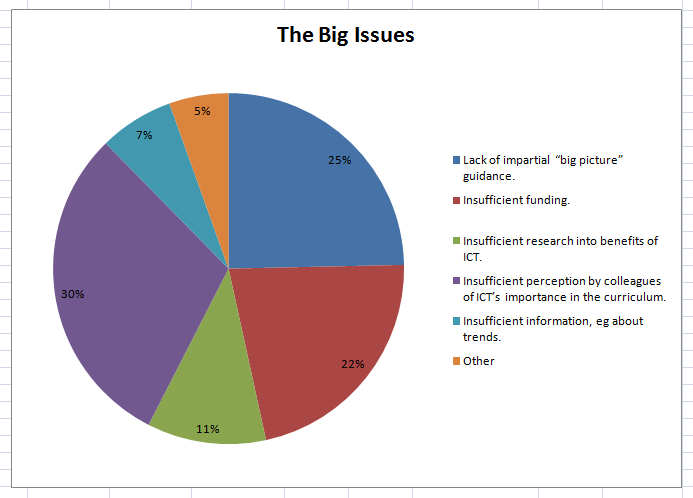I don’t have too much time for mission statements. To be honest, I regard them as being unnecessary. Actually, I’d go further: if an organisation is so hung up on its image that it wastes time and resources on thrashing out a mission statement, what does that tell you about its priorities? More to the point, why should any organisation even need a mission statement? Its mission statement should be implicit in the way it goes about its business.
How about this as an example. A couple of months ago my computer started playing up. Unfortunately, it started to get really bad about two days after the year’s money-back guarantee had run out. Fortunately, there was a free maintenance package thrown in, which meant that for two years I could get it repaired free of charge, on a return to base basis. Not ideal, but still, better than nothing. So I decided to avail myself of this service, and the retailer I purchased the computer from arranged for a courier company to pick it up the next day. The following conversation ensued when the courier arrived:
Me: Ah, I think there’s going to be a problem because --
Courier: Look, mate, I’m not here to repair it, I’m just the courier. Just give me the computer.
Me: Well, what I was about to say, was that I don’t think it’s going to fit into that container you’ve brought.
Courier: OK I’ll be off then.
Me: Wait a minute, let me just measure it. Come in for a cup of tea while I do that.
Courier: I don’t want a cup of tea, I’ve got to get on.
Me: Well let me just measure the container you’ve brought.
Courier: I ain’t got time for that. Phone the company.
Me: Can’t you just hang on for two minutes? I need this computer for my work.
Courier (driving off): That ain’t my problem, mate.
I think that statement, “That ain’t my problem, mate”, sounded like the company’s mission statement. Was I right?
Well, I phoned the company up right away, having to use an 0845 number which, here in the UK, is charged for at a premium rate. I was then subjected to 12 minutes of awful music, and advertisements. When I finally managed to speak to someone, she said she’d try and arrange collection for the following afternoon.
“I’ll let you know if that’s not possible”, she said.
“No, could you let me know either way, please?”
“OK”.
When, by 4 pm, I had heard nothing, I phoned the company again, and spent 8 minutes listening to “music” and advertisements. The girl I finally managed to speak to was not the same one as I’d spoken to in the morning. There was no record of my phone call, and no collection booked in. She assured me that she would call me to let me know what was happening. (Incidentally, that was 2 months ago. I am still waiting.)
I phoned the company I bought the computer from to see if they could help, and they told me they would phone the courier company. Fifteen minutes later, she phoned back to say that she hadn’t managed to speak to anyone yet, because she’d been listening to music and advertisements, but would try again.
A few minutes later she phoned me back, and told me that she’d spoken to her manager, and he decided I’d been treated so badly that I could bring the computer in and obtain a full refund. (What do you think that retailer’s mission statement is?) I did so, and immediately purchased a new one, of a different manufacturer.
There have been several outcomes of this episode:
- That was the first time I had any dealings with that courier company. It will be the last.
- So committed am I to that last statement that, having found out that the manufacturer of my original computer uses that courier exclusively, I have decided to never buy that make again, so I never have to deal with that courier company again.
- I got a new computer out of it.
Just to finish the story, the following morning (not afternoon, as requested) there was a ring at the door. A (different) courier had come to collect my computer.
If you think about the behaviour of the courier company, what conclusion could you draw other than that the leadership must be at best incompetent, and at worst actively contemptuous of its customers? Because this is my contention: that the service an organisation provides –- whether it’s a corner store, a department store, a government department or an ICT department in a school – is a direct reflection on the quality and priorities of its leadership. How else could an organisation provide such appalling service, at various levels?
The story also illustrates another point which for some reason is often not as obvious to service providers as it should be: everyone in the organisation is a representative of the organisation. They may not think of themselves in that way, but the bottom line is that if they upset enough people to the extent that the organisation has to reduce its operations or even fold altogether, their jobs could be on the line.
But in that case, all I have to say is: it ain’t my problem, mate.
 Tell me something I DON'T knowHave ICT Co-ordinators and others whose job it is to bring other colleagues on board with using technology missed a trick? Perhaps posters could inform people that computers do things automatically, or that word processors have built-in spell-checkers.
Tell me something I DON'T knowHave ICT Co-ordinators and others whose job it is to bring other colleagues on board with using technology missed a trick? Perhaps posters could inform people that computers do things automatically, or that word processors have built-in spell-checkers.














![Reblog this post [with Zemanta]](http://img.zemanta.com/reblog_b.png?x-id=8a0c5167-ea8f-430d-ad1d-4cb83ef4a1a1)